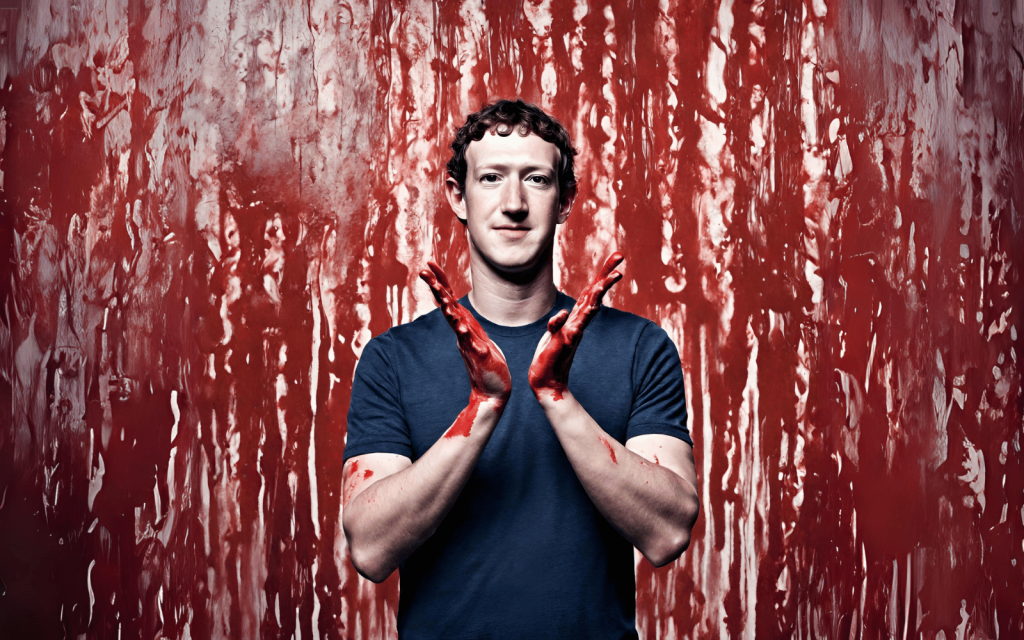“Mr Zuckerberg, what the hell were you thinking?” Senator Ted Cruz asked the Facebook CEO yesterday in an incendiary US Senate hearing about online sexual exploitation.
Cruz was referring to an Instagram warning that users might see content containing or concerning child sexual abuse material but asks if they would like to “see the results anyway”.
It is unbelievable that such madness even exists but it’s indefensible that it isn’t taken down immediately. Zuckerberg argued that the “basic science behind that… [is] often helpful to, rather than just blocking it, to help direct them towards something that could be helpful”.
Really? Helpful for whom?
Remember this is the same man who said that Holocaust denialists aren’t “intentionally getting it wrong”. Really, how many neo-Nazi hatemongers are “unintentionally” misunderstanding how 6-million Jews were murdered for just being Jewish.
As you might expect, the parents of the teenagers who committed suicide after seeing harmful things on Instagram didn’t believe Zuckerberg.
“I’m not happy with the answers the CEOs are giving. They can’t give a straight answer. Not even ‘yes’ or ‘no,” said Tammy Rodriguez, whose 11-year-old daughter Selena Rodriguez committed suicide three years ago. Strangers on Instagram and Snapchat tried to solicit sexually exploitative images from her. She was 11. Let that sink in.
Zuckerberg has “blood on his hands,” Senator Lindsey Graham told him. “You have a product that’s killing people.”
He added: “These companies must be reined in, or the worst is yet to come”.
Last month, it was revealed as part of a lawsuit by the New Mexico attorney general that 100,000 children experience sexual harassment on Instagram and Facebook every day. Every day.
This includes being shown “pictures of adult genitalia” and is based on Facebook’s own internal documents, which include one incident where the 12-year-old daughter of an Apple executive was harassed via Instagram messages.
“This is the kind of thing that pisses Apple off to the extent of threatening to remove us from the App Store,” one Meta staffer emailed.
As usual, Facebook/Meta used its go-to excuse when confronted by a long series of legal challenges by many US attorneys-general that it “mischaracterises our work using selective quotes and cherry-picked documents”.
How exactly do you “cherry-pick” things like 100,000 cases of sexual harassment a day? Or more accurately, how do you not cherry-pick that?
After Cruz’s comments, Zuckerberg said he would “personally look into it”.
If only that was believable.
Former Facebook engineer Arturo Béjar, who worked there from 2009 to 2015, told a Senate Judiciary subcommittee hearing last year that his own teenage daughter was sexually harassed on Instagram.
“She and her friends began having awful experiences, including repeated unwanted sexual advances, harassment,” Béjar said in November. “She reported these incidents to the company and it did nothing.”
He returned to the company in 2019 to help with this problem. He spent a year collecting data that showed 51% of Instagram users reported a “bad or harmful experience” during the previous week, while 21% experienced bullying and 24% received unwanted sexual advances. Only 2% of posts reported as harmful content were ever removed.
“It is unacceptable that a 13-year-old girl gets propositioned on social media,” Béjar testified. “We don’t tolerate unwanted sexual advances against children in any other public context, and they can similarly be prevented on Facebook, Instagram and other social media products.”
So Béjar emailed a two-page letter to Zuckerberg in 2021, then chief operating officer Sheryl Sandberg, Facebook’s then chief of product Chris Cox and Instagram head Adam Mosseri.
“I wanted to bring to your attention what l believe is a critical gap in how we as a company approach harm, and how the people we serve experience it,” he wrote. “There is no feature that helps people know that kind of behaviour is not ok.”
Unsurprisingly, Béjar never heard back from Zuckerberg.
Read More: Why Google and Meta owe news publishers much more than you think – and billions more than they’d like to admit
This week Zuckerberg told US lawmakers: “The existing body of scientific work has not shown a causal link between using social media and young people having worse mental health”.
But in a May 2021 email, Instagram head of policy Karina Newton wrote: “It’s not ‘regulators’ or ‘critics’ who think Instagram is unhealthy for young teens – it’s everyone from researchers and academic experts to parents.” “The blueprint of the app is inherently not designed for an age group that don’t have the same cognitive and emotional skills that older teens do.”
As Senator Graham told Zuckerberg: “You have a product that’s killing people”.




